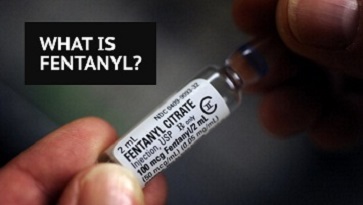Fentanyl Addiction Treatment: Pathways to Recovery and Hope
Fentanyl-Shop offers comprehensive information on Fentanyl addiction treatment. Visit us to find original top-branded products for effective recovery solutions. We are your supplier of original top branded Fentanyl products. Fentanyl, a powerful synthetic opioid, is commonly associated with a high risk of addiction and abuse. Recognizing the gravity of fentanyl addiction is the first step towards recovery. Addiction to fentanyl can devastate lives and communities, but there is hope. Comprehensive treatment programs can help individuals reclaim their lives and achieve lasting sobriety.
Effective fentanyl addiction treatment typically involves a multi-faceted approach that includes medical, psychological, and social support. Medically supervised detoxification is often the first stage, aiming to safely manage withdrawal symptoms and provide a stable foundation for recovery. Medications such as methadone, buprenorphine, and naltrexone can be crucial in reducing cravings and withdrawal symptoms, thus increasing the chances of successful recovery.

In addition to medical interventions, behavioral therapies play a pivotal role in addressing the underlying causes of addiction. Cognitive-behavioral therapy (CBT), contingency management, and motivational interviewing are some of the proven methods used to help patients develop healthier coping mechanisms and strategies to avoid relapse. Comprehensive treatment programs also emphasize the importance of peer support groups, such as Narcotics Anonymous (NA), to foster a sense of community and shared experience among individuals in recovery.
It is important to emphasize the need for a personalized treatment plan. Each individual’s journey into and out of addiction is unique, and tailored treatment plans are essential to address specific needs and circumstances. Continuous monitoring and adjustments to the treatment plan ensure that it remains effective and responsive to the individual’s progress and challenges.
Fentanyl Medical Uses: Indispensable in Modern Medicine
Fentanyl has revolutionized modern medicine with its potent pain-relieving properties. Developed during the 1960s, fentanyl is approximately 100 times more potent than morphine, making it an invaluable tool for managing severe pain. Its rapid onset and short duration of action make fentanyl a preferred option in various medical settings, including surgery, emergency care, and chronic pain management.
One prominent medical use of fentanyl is in the management of acute pain during and after surgical procedures. Administered intravenously, fentanyl provides rapid pain relief, which is crucial for patient comfort and overall surgical success. Anesthetic regimens often include fentanyl to enhance anesthesia and ensure a smoother recovery process post-surgery.
Beyond surgical pain management, fentanyl is often prescribed for patients dealing with severe chronic pain, particularly when alternative pain management strategies have proven ineffective. Conditions such as cancer, severe injury, and neuropathic pain can significantly impede quality of life, and fentanyl offers a reliable option to improve patient comfort. Fentanyl is available in various formulations, including transdermal patches, lozenges, and buccal tablets, allowing for tailored pain management strategies that meet the needs of individual patients.
Palliative care, a specialized field focusing on relieving pain and symptoms in terminally ill patients, also benefits from the use of fentanyl. By providing effective pain relief, fentanyl enhances the quality of life for patients in the final stages of their illness, allowing them to spend their remaining time with dignity and comfort.
While the medical uses of fentanyl are undeniable, it is crucial for healthcare providers to prescribe and monitor its use carefully. Proper patient education on the correct use of fentanyl, potential side effects, and the importance of adherence to prescribed dosages is essential to prevent misuse and accidental overdoses.
Fentanyl Long-Term Effects: Weighing the Risks
Fentanyl, with its high potency, presents significant risks when used over an extended period. Understanding the long-term effects of fentanyl is critical for both patients and healthcare providers to make informed decisions about its use.
One of the most alarming long-term effects of fentanyl use is the potential for addiction. The euphoric sensation it provides can lead to psychological dependence, wherein individuals actively seek out the drug despite adverse consequences. Physical dependence is also a common risk, where the body adapts to the presence of the drug, leading to tolerance and the need for higher doses to achieve the same effect. This escalation increases the risk of overdose, which can be fatal.
Chronic fentanyl use can have profound effects on physical health. Respiratory depression, a condition where breathing becomes dangerously slow or shallow, is a well-known risk associated with opioid use. Over time, this can lead to persistent respiratory issues and even irreversible damage to the lungs. Additionally, chronic use can impact the gastrointestinal system, leading to severe constipation, which can result in complications such as bowel obstruction.

Mental health is also profoundly affected by long-term fentanyl use. Individuals may experience cognitive impairments, such as difficulties with memory, attention, and decision-making. These cognitive changes can persist even after discontinuing the drug, indicating potential lasting damage to brain function. Furthermore, long-term use can exacerbate or contribute to emotional disturbances like depression, anxiety, and mood swings.
Social and economic impacts cannot be overlooked when discussing the long-term effects of fentanyl use. Individuals struggling with addiction often face deteriorating relationships with family, friends, and colleagues. Loss of productivity, financial instability, and legal troubles are common consequences that further compound the individual’s hardships.
Recognizing the long-term risks associated with fentanyl is essential for mitigating its adverse effects. Healthcare providers must closely monitor patients using fentanyl and provide comprehensive support, including alternatives for pain management and resources for addiction treatment. Education and awareness campaigns are vital to inform the public about the risks of long-term fentanyl use and emphasize the importance of seeking help when needed.
Exploring the Mechanism of Action: How Fentanyl Works in the Body
Understanding how fentanyl works in the human body provides important insights into its effectiveness as a pain reliever and its potential for misuse and addiction. Fentanyl operates by binding to specific receptors in the brain and spinal cord known as opioid receptors. These receptors are part of the central nervous system’s pain control and emotional response wiring.
When fentanyl attaches to these receptors, it inhibits the transmission of pain signals and induces a sense of euphoria, which can be highly addictive. The rapid onset of action is attributed to its lipid solubility, allowing it to cross the blood-brain barrier quickly and produce almost immediate effects.
This mechanism makes fentanyl incredibly effective for pain management, yet equally dangerous due to the high risk of addiction and respiratory depression. It is vital to address these challenges by ensuring proper educational interventions and comprehensive addiction treatment programs that address both the mental and physical components of dependency.
The Role of Fentanyl in Modern Pain Management
Fentanyl has significantly advanced pain management, providing relief to millions of patients who suffer from severe pain. However, its potent nature requires a careful approach to minimize risks. The use of fentanyl in pain management should be a balanced consideration, prioritizing patient safety while optimizing pain relief.

Medical professionals must be vigilant in assessing the appropriateness of fentanyl for each patient, taking into account the potential benefits and risks. Patient education about proper usage, adherence to prescribed dosages, and awareness of possible side effects are paramount in preventing misuse and ensuring effective pain management.
Moreover, exploring complementary therapies and multimodal pain management strategies can enhance the safety and effectiveness of fentanyl usage. Physical therapy, cognitive-behavioral techniques, and non-opioid medications can provide additional avenues for managing pain while reducing reliance on fentanyl. Buy pain relief online without prescription, Fentanyl Addiction Treatment, Fentanyl Medical Uses, Fentanyl Long-Term Effects, Fentanyl in Modern Pain Management, Modern Pain Management, Modern Pain Management in USA, Modern Pain Management in the UK.
By approaching fentanyl use with caution, healthcare providers can harness its benefits for pain relief while protecting patients from the potential harms of long-term or improper use. Emphasizing comprehensive care and continuous monitoring can optimize outcomes and improve the overall patient experience
